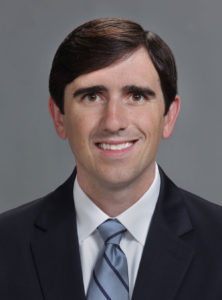Shoulder Labral Tear Specialist

Are you an athlete who participates in sports that involve throwing overhead? If so, you may be at risk of developing a shoulder labral tear or a SLAP tear. Shoulder labral tears and SLAP tears are common injuries sustained after a fall on an outstretched hand, from a sports injury or from natural degeneration of the labrum. Shoulder labral specialist, Dr. Robert Boykin provides diagnosis and both surgical and nonsurgical treatment options for patients in Asheville who have labral or SLAP tears in the shoulder. Contact Dr. Boykin’s team today!
SLAP Tear Overview
The labrum is a type of cartilage found in the shoulder joint that surrounds the glenoid (or socket). It serves an important role in the movement of the shoulder because it helps to keep the humerus (ball) in the socket and serves as an attachment site for the glenohumeral ligaments and the biceps tendon. When an injury to the shoulder occurs the labrum is susceptible to tearing. This is commonly seen in shoulder dislocations. In addition, degenerative tearing of the labrum may be present in older patients.
A specific type of labral injury is called a SLAP tear (Superior Labrum Anterior Posterior). This tear occurs on the top of the glenoid and is oriented in an anterior to posterior (front to back) direction. This area of the labrum is important as it serves as the attachment site for the long head of the biceps tendon. A SLAP tear is usually the result of repetitive overhead motion (such as throwing or serving) or acute trauma. Shoulder specialist Dr. Robert Bokin focuses on treating patients in Asheville, Arden, Fletcher and surrounding North Carolina communities who have sustained a SLAP tear.
Symptoms of a SLAP Tear
The symptoms of a SLAP tear can often be confused with the symptoms of many other shoulder injuries. Symptoms most commonly associated with a labral or SLAP tear include:
- Deep shoulder pain
- Pain with overhead motion
- Inability to maintain normal motion of the shoulder
- A sense of instability without a dislocation of the joint
How to Diagnose a SLAP Tear
In diagnosing a SLAP tear, Dr. Boykin will first perform a detailed history and physical examination. Tests for a SLAP tear include the O’Brien’s active compression test and the dynamic sheer test. X-rays are taken to rule out other causes of shoulder pain. A MRI or CT scan may also be performed as this has been shown to be the best way to visualize the glenoid labrum and biceps tendon. Upon diagnosis Dr. Boykin will begin to discuss treatment options with the patient. If the injury is found to be mild he will most likely recommend resting the injured shoulder for a length of time while taking anti-inflammatory medications and using ice. This will be followed by a directed course of physical therapy for stretching and strengthening. If these treatments are not beneficial, Dr. Boykin may recommend surgery in order address the injury.
Surgical Treatment for a SLAP Tear
Dr. Boykin prefers to address SLAP tears via arthroscopic shoulder surgery using small incisions, a camera, and special instruments. The exact type of surgery he will perform depends upon the severity of the tear, associated injuries, and the condition of the biceps tendon. The three surgical options that Dr. Boykin performs for this type of injury are debridement, SLAP repair, or biceps tenodesis. Debridement is only performed in mild tears (most commonly when there are also other injuries in the shoulder) and there is no injury to the biceps tendon. A SLAP repair consists of using strong sutures (stitches) to reattach the labrum to the socket. This procedure is typically reserved for younger, overhead athletes and is performed in conjunction with repair or a larger labral tear (extending down the front of the back of the socket). In the majority of cases the procedure that provides the best pain relief and restoration of function for a SLAP tear is a biceps tenodesis. This involves removing the injured biceps tendon from the torn labrum and reinserting it into a different area of the shoulder.
If you have any further questions on labral tear and SLAP tears, or for further information on the arthroscopic shoulder surgeries discussed on this page, please contact the office of Dr. Robert Boykin, orthopedic shoulder surgeon serving Asheville, Arden, Fletcher and surrounding North Carolina communities.
